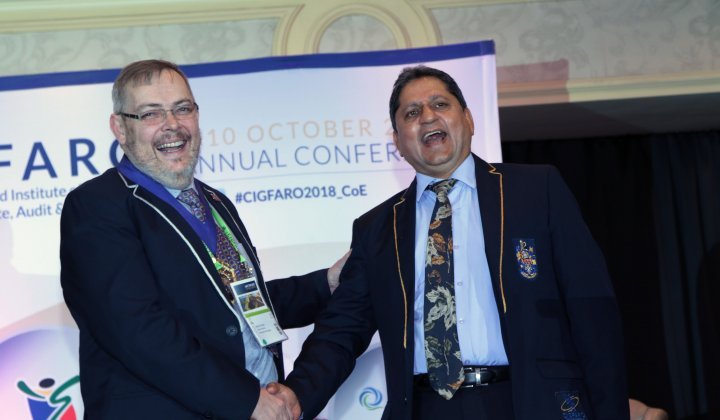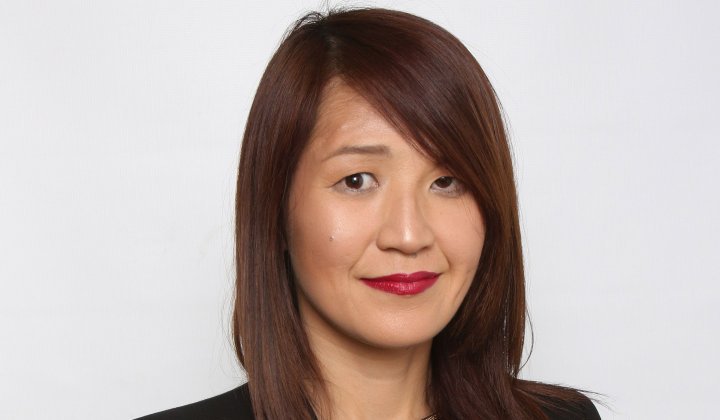The Industrial Development Corporation (IDC) has a long and illustrious history when it comes to promoting economic growth and development in South Africa. Established in 1940 as a fully owned entity of the South African government, it was mandated to create a safeguard for the South Africa economy during a time when trade with Europe was disrupted as a result of the Second World War.
In eight decades that have passed since its formation, the IDC’s mandate has evolved. Among its core objectives, the institution is now responsible for unlocking infrastructure development and investments aimed at stimulating local economic growth and regional integration.
In the driver’s seat
Among other people that are central to achieving this goal is Ruse Moleshe, the IDC’s Head of Industrial Infrastructure. She has more than 20 years’ experience in the power and infrastructure space. Her ability to run this important division within the IDC is further enhanced by the fact that her experience has bridged both the public and private sectors. She has worked for the Development Bank of Southern Africa (DBSA), Standard Bank and construction giant Basil Read’s subsidiary (Basil Read Matomo), as well as within government. All of these roles saw Moleshe expanding her experience in the infrastructure space.
Now, from her vantage point within the IDC, Moleshe is committed to helping the development finance institution meet its developmental mandate. “We are looking to further develop infrastructure across several key sectors like power, ICT, water and logistics, which include ports, roads, rail and storage facilities. This new wave of projects should ultimately support the country’s key industry sectors including metals and mining, basic and speciality chemicals, agro-processing and agriculture,” she explains.
Her personal goal dovetails with that of the IDC as she seeks to increase the number of projects the IDC is involved in, not only in South Africa but regionally. Just like the IDC’s mandate, she believes in further enhancing the reach of the organisation by ensuring that people who were previously excluded from sectors, such as women in oil and gas, get an opportunity to participate through the IDC’s ability to drive this agenda through the deals they facilitate. Indeed, the transformation of women and the development of black industrialists and youth are issues close to Moleshe’s heart.
Committed from the start
As a developmental finance institution, the IDC has a greater appetite for risk than the commercial sector. “Unlike commercial banks, the IDC looks at core development of the projects,” explains Moleshe. “Commercial banks require bankable feasibility studies. We put in the equity to make sure that there is funding from the beginning to get the bankable feasibility studies and then we can draw in other partners.” Because of this approach, a number of successful projects which would never have got off the ground without the IDC’s intervention, are being implemented. The renewable energy sector in particular has benefited from IDC’s involvement.
But the successes that IDC is achieving are not without their challenges. Moleshe explains that getting investors to back IDC initiatives can often be challenging, especially when dealing with traditionally more conservative investors, like pension funds. Also, she says: “We are working with a number of start-ups so a lot of hand-holding is required from an IDC point of view. We don’t always have the capacity to support these new businesses in the way they need, and this can be challenging.”
Cross-border projects that involve South Africa and a neighbouring country can also pose challenges due to geographical and logistical issues. For instance, part of a project may be bankable on one side of the border, but could lose its appeal on the other. Moleshe mentions transmission lines as just one example.
As the IDC pushes ahead into other African jurisdictions it is feasible that these challenges will increase, giving Moleshe and team a whole new set of hurdles to navigate. Africa is a vast continent. Its 54 countries not only have different languages and cultures, each country also works within individual legal and regulatory frameworks, and has different infrastructural needs and business environments. It is for this reason that the IDC works with partner entities like its sister company, the Development Bank of Southern Africa, which has vast experience in working across Africa and with regional commercial banks to co-develop projects. Working with local partners means that the IDC gets access to essential specialist knowledge concerning the working conditions on the ground. In this respect, Moleshe cites the current concern around the repatriation of investment capital from jurisdictions that may not have the forex reserves or the environment to enable this.
In spite of such issues, Moleshe stresses that regional diversification is a key strategic imperative for the IDC and that the organisation will continue working to drive this agenda forward. The IDC is well poised in this respect, bringing as it does extensive experience of the African economic ecosystem to the table, and insights gained from the projects it already finances across Africa. So far, the projects that the IDC is interested in centre on the power sector in Southern and East Africa. “There is a lot of demand for energy sector projects,” notes Moleshe. The IDC is already financing power projects in Mozambique, Ghana and Zimbabwe.
She adds: “There is also a demand for ports. Ports are an economic enabler for a lot of countries, so the demand for their development is rising.”
Delivering an investment pipeline for South African business
Intra-Africa exposure will guarantee the IDC greater diversity in its projects. In building a more extensive African portfolio Moleshe and the IDC will be better able to deliver on their mandate of driving South Africa’s economic development, supporting local manufacturing and creating much needed employment.
But in order to do this the project pipeline needs to be established and filtered through to clients. Moleshe explains that between the IDC and its partner organisations, projects across Africa are carefully identified. She explains: “We go out and understand what the different countries are about, where there are infrastructure gaps and where the opportunities are. We then share this information with our South African partners and our clients to be able to say that these are the projects we can participate in.”
This commitment and understanding of the opportunities that exist on the continent has given the IDC a leading edge in the African development ecosystem. Moleshe and her team are committed to driving an agenda that will ultimately mean greater success for South African businesses and entrepreneurs, and the people that they employ.




